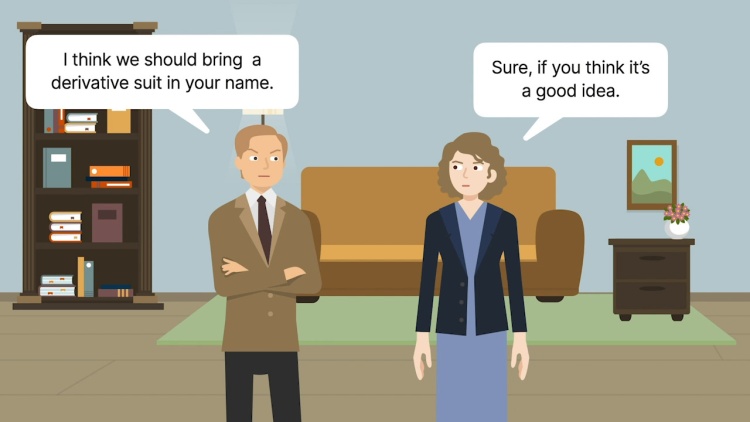Surowitz v. Hilton Hotels Corp.
United States Supreme Court
383 U.S. 363 (1966)

- Written by Sean Carroll, JD
Facts
Dora Surowitz (plaintiff) was a Polish immigrant with limited English vocabulary and no education. In 1957, with the help of her son-in-law, Irving Brilliant (Brilliant), she purchased $2,000 worth of stock in Hilton Hotels Corp. (Hilton) (defendant). Brilliant was a professional investment advisor and also had a law degree from Harvard and a master’s degree in economics from Columbia. About five years after the purchase, Mrs. Surowitz received a notice from Hilton stating that it was planning to buy back a lot of its stock. Mrs. Surowitz went to Brilliant so he could explain the notice to her. Brilliant, after investigating the notice and Hilton, determined that Hilton was engaged in fraudulent practices. Brilliant explained this to Mrs. Surowitz, and Mrs. Surowitz agreed to file a derivative shareholders suit against Hilton in her name. Brilliant fully explain the complaint to Mrs. Surowitz, which she then verified pursuant to Rule 23(b) [now Rule 23.1] of the Federal Rules of Civil Procedure. The district court, before requiring Hilton to answer the complaint, allowed it to depose Mrs. Surowitz. At the deposition, it was apparent that Mrs. Surowitz did not understand the complaint or much of what the lawsuit was about. It was also apparent that in signing her verification, she had simply relied on what Brilliant had told her about the case. Based on this, Hilton filed a motion to dismiss the case, and the district court granted the motion. On appeal, the United States Court of Appeals for the Seventh Circuit affirmed the district court, determining that whether the allegations in the complaint were true or not was irrelevant because Mrs. Surowitz in her oral testimony did not seem to know anything about the lawsuit. Mrs. Surowitz appealed.
Rule of Law
Issue
Holding and Reasoning (Black, J.)
Concurrence (Harlan, J.)
What to do next…
Here's why 907,000 law students have relied on our case briefs:
- Written by law professors and practitioners, not other law students. 47,100 briefs, keyed to 996 casebooks. Top-notch customer support.
- The right amount of information, includes the facts, issues, rule of law, holding and reasoning, and any concurrences and dissents.
- Access in your classes, works on your mobile and tablet. Massive library of related video lessons and high quality multiple-choice questions.
- Easy to use, uniform format for every case brief. Written in plain English, not in legalese. Our briefs summarize and simplify; they don’t just repeat the court’s language.





